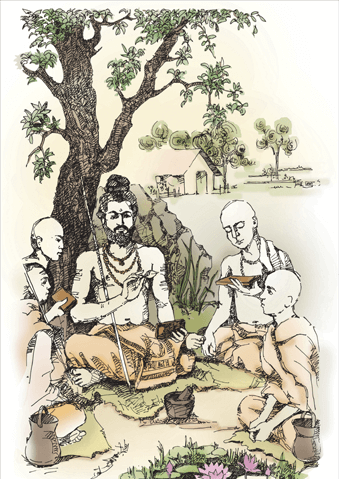Why You Need to Get It: The Transformative Power of Ayurveda Explained
Ayurveda, a time-honored system of medication, provides an one-of-a-kind perspective on health that goes beyond plain sign management. As we check out the core concepts and practices of Ayurveda, it comes to be obvious that its transformative potential prolongs far beyond typical wellness paradigms-- increasing the question of exactly how it could reshape your understanding of health.
Recognizing Ayurveda's Core Principles
Ayurveda, usually called the "science of life," is rooted in an alternative technique to health and wellness that links the physical, mental, and spiritual measurements of well-being. Central to Ayurveda are the principles of the five elements, called "Pancha Mahabhuta," which consist of planet, water, ether, fire, and air. These elements combine to create three main powers, or "doshas": Vata, Pitta, and Kapha, each standing for various combinations of emotional and physical attributes.


Comprehending these doshas is essential for recognizing an individual's one-of-a-kind constitution, or "Prakriti," which overviews individualized health strategies. Ayurveda highlights equilibrium, supporting for a lifestyle that balances these energies via diet, herbal remedies, and everyday routines. Ayurvedic concepts assert that health and wellness is not just the lack of disease however a state of optimum vitality.
The method of mindfulness and self-awareness is basic, motivating people to establish a much deeper link with their bodies and the atmosphere. By recognizing the interaction of emotional and physical factors, Ayurveda promotes a thorough understanding of health and wellness that encourages individuals to organize their well-being, fostering a course towards alternative makeover.
Benefits of Ayurvedic Practices
On a regular basis incorporating Ayurvedic methods into daily life can generate a multitude of benefits that boost overall well-being. These time-honored practices focus on achieving harmony within the spirit, mind, and body, bring about boosted physical health, mental quality, and psychological equilibrium.
One substantial benefit of Ayurvedic techniques is their capacity to promote gastrointestinal wellness. Customized nutritional referrals, based upon a person's dosha, can enhance nutrition absorption and decrease gastrointestinal concerns. Additionally, Ayurvedic herbs and flavors, such as turmeric and ginger, have anti-inflammatory residential or commercial properties that can assist in the prevention and administration of persistent diseases.
In addition, Ayurvedic methods emphasize the relevance of everyday regimens, called dinacharya, which promote security and predictability in one's life. This uniformity can reduce tension levels and enhance performance. Mindfulness techniques, consisting of meditation and yoga, not just cultivate mental durability yet likewise boost psychological guideline.
Lastly, by cultivating a link to nature and stressing all natural living, Ayurveda encourages individuals to participate in self-care and grow a feeling of community. In general, the assimilation of Ayurvedic methods can bring about a much more balanced, vivid, and fulfilling life.
Trick Components of Ayurvedic Recovery
What are the basic components that contribute to the efficacy of Ayurvedic recovery? At the core of Ayurveda lie three key elements: the principle of doshas, the emphasis on equilibrium, and the all natural approach to health and wellness. The doshas-- Vata, Pitta, and Kapha-- stand for the special combinations of the 5 elements that govern individual constitutions. Comprehending one's dosha look at this website is important for customizing therapies that restore equilibrium and advertise well-being.
Equilibrium is a persisting style in Ayurvedic recovery, reflecting the belief that health emerges from consistency within the body and between the specific and their setting. Disruption of this equilibrium can cause disease, requiring targeted treatments to recover stability.
Additionally, Ayurveda welcomes a holistic approach, thinking about physical, psychological, and spiritual aspects of health and wellness. This comprehensive viewpoint recognizes that psychological well-being and way of living options substantially affect physical health.
Integrating Ayurveda Into Daily Life
Integrating the principles of Ayurveda into every day life can substantially boost overall well-being and promote a much deeper connection to one's body and setting. By taking on Ayurvedic methods, individuals can cultivate balance and harmony within themselves, adapting to their distinct constitution or dosha.

Incorporating natural remedies and all-natural ingredients right into personal care routines can even more reinforce Ayurvedic concepts. Making use of oils for self-massage, understood as abhyanga, promotes circulation and leisure. In addition, including meditation or yoga can improve mental clarity and emotional stability, fostering an alternative method to health.
Finally, recognizing environmental factors, such as environment and seasonal modifications, allows individuals to adjust their lifestyles appropriately, making certain that their techniques stay efficient and encouraging - Ayurveda. By weaving these concepts into daily life, one can experience profound benefits, resulting in an extra balanced and satisfying presence
Personal Makeovers Via Ayurveda
The application of Ayurvedic principles right into day-to-day routines usually results in considerable individual makeovers, as people start to experience profound shifts in both mental and physical health. By welcoming techniques such as nutritional adjustments, organic supplements, and conscious meditation, lots of record enhanced energy degrees, improved digestion, and improved psychological durability.
Individuals usually find look at this web-site that the holistic technique of Ayurveda addresses not just symptoms, yet underlying imbalances within the mind and body. For example, taking on a tailored nutritional routine based upon one's dosha can bring about weight monitoring, decreased inflammation, and far better overall vigor - Ayurveda. Additionally, the consolidation of everyday self-care rituals, such as oil drawing or Abhyanga (self-massage), cultivates a deeper connection to one's body, promoting self-awareness and nurturing psychological well-being.
As professionals dive deeper right into Ayurvedic philosophy, they regularly uncover a restored feeling of purpose and clarity in their lives. This transformative trip motivates people to cultivate mindfulness, bring about much healthier relationships and a greater gratitude for the present minute. Eventually, Ayurveda empowers individuals to organize their health and wellness, promoting a long lasting and purposeful change in their lives.
Final Thought
The transformative power of Ayurveda depends on its all natural approach, promoting consistency amongst mind, body, and spirit. By implementing and identifying individual doshas tailored techniques, Ayurveda promotes optimum health and wellness and psychological strength. Its combination right into life urges conscious living and much deeper connections within areas. Ultimately, welcoming Ayurveda can cause extensive individual transformations, improving general health and assisting in a more harmonious and balanced existence. The principles of Ayurveda use important insights for growing a satisfying and vibrant life.
As we discover the core principles and practices of Ayurveda, it ends up being obvious that its transformative prospective prolongs much beyond typical wellness paradigms-- elevating the inquiry of exactly how it may reshape your understanding of health.
Ayurveda, often described as the "science of life," this link is rooted in an alternative method to health that links the physical, mental, and spiritual measurements of health. At the core of Ayurveda exist 3 key components: the principle of doshas, the emphasis on balance, and the all natural strategy to health and wellness. Inevitably, Ayurveda encourages individuals to take charge of their health, helping with a significant and lasting transformation in their lives.
By identifying private doshas and carrying out customized practices, Ayurveda cultivates optimal health and emotional strength.
Comments on “How Ayurveda Promotes Holistic Health and All-natural Recovery”